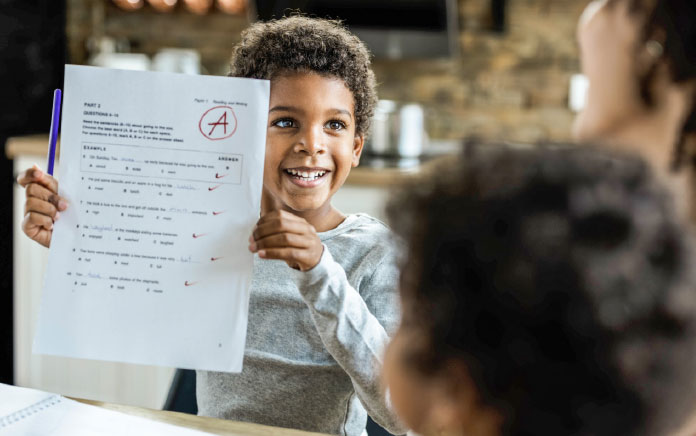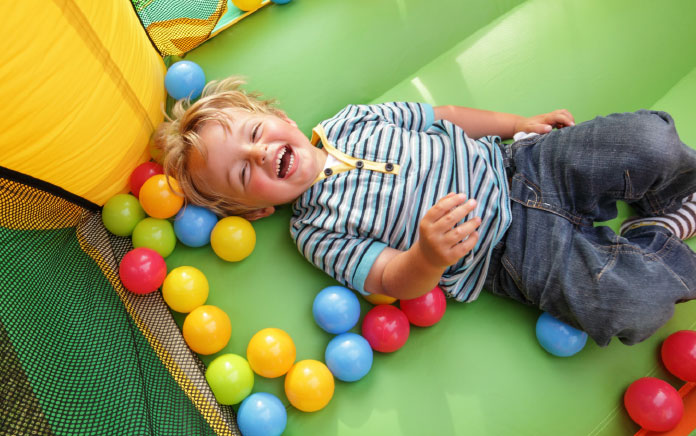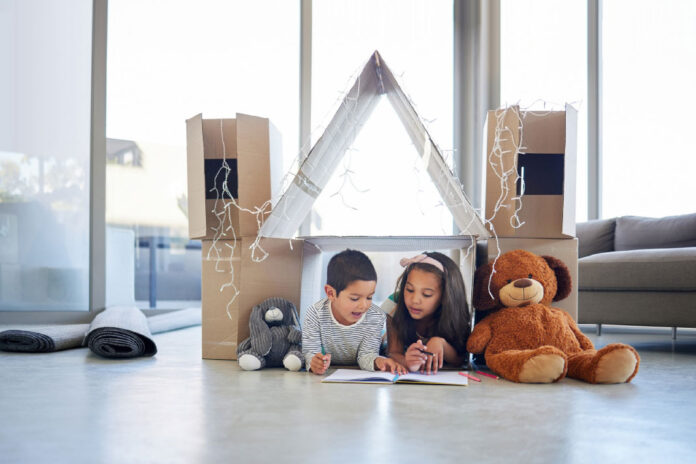Woman This Month’s Parenting Columnist, Ouiam El Hassani, tells us why unstructured play is crucial for children’s development.
As parents, we often work towards introducing some level of structure into our children’s lives, but this structure doesn’t necessarily need to make its way into their playtime.
Unstructured play is play without predetermined rules. It is spontaneous, often made-up on the spot, and changeable as the day goes on. It is the kind of play you see when puppies chase each other around a yard in endless circles or a group of kids play for hours in a fort they created out of old boxes.
Unstructured play is fun—no question about it—but research also tells us that it is critically important for the development of children’s bodies and brains.
One of the best ways to encourage unstructured play in young children is by providing toys that can be used in multiple ways. Providing time and opportunities for unstructured play may be the best gift you offer your child today.
HERE’S WHY UNSTRUCTURED PLAY IS CRUCIAL FOR CHILDREN:
 IT POSITIVELY CHANGES BRAIN STRUCTURES
IT POSITIVELY CHANGES BRAIN STRUCTURES
Play actually changes the structure of the developing brain, strengthening the connections of the neurons (nerve cells) in the prefrontal cortex, the area of the brain considered to be the executive control centre responsible for solving problems, making plans and regulating emotions. Because unstructured play involves trying out different strategies without particular goals or serious consequences, children as well as animals get to practice different activities during play and see what happens. Experts say that it teaches us how to deal with the unexpected—a critically important skill in today’s uncertain world.
It’s cognitive benefits are profound. As children experiment and explore, they learn about cause and effect, problem-solving, and critical thinking. They develop their imaginations as they create stories and scenarios. It also lays the foundation for future learning, as children develop a natural curiosity and a love for exploration.
In a world that often demands conformity and pre-defined success, unstructured play provides a vital space for children to be themselves, explore their individuality, develop their own interests, and discover their passions. It’s a time to simply be a child.
 IT ENCOURAGES HEALTHY INTERACTIONS
IT ENCOURAGES HEALTHY INTERACTIONS
It used to be thought that animal play was simply practice so that they could become more effective hunters. However, research has shown that play serves an entirely different function: which is teaching young animals how to interact with others in positive ways. Play helps build pro-social brains.
 CHILDREN WHO PLAY ARE OFTEN BETTER STUDENTS
CHILDREN WHO PLAY ARE OFTEN BETTER STUDENTS
The social skills acquired through play may help children become better students. Research has found that the best predictor of academic performance in the eighth grade was a child’s social skills in the third grade. Countries where they actually have more recess such as Finland, tend to have higher academic performance than countries where recess is less.
 IT GETS KIDS MOVING
IT GETS KIDS MOVING
One of the most significant benefits of unstructured play is the development of a child’s physical well-being. Running, jumping, climbing, and building all contribute to gross motor skills, while manipulating smaller objects like blocks or toy cars enhances fine motor skills. Unstructured play often takes place outdoors, exposing children to fresh air and sunlight, which is vital for their overall well-being.
It is tempting in today’s busy world for us to fill every minute of their day with structured activities, but is it necessary?
Remember to carve out time for unstructured play; time for kids to get together with absolutely nothing planned and no particular goals in mind — except having fun.





